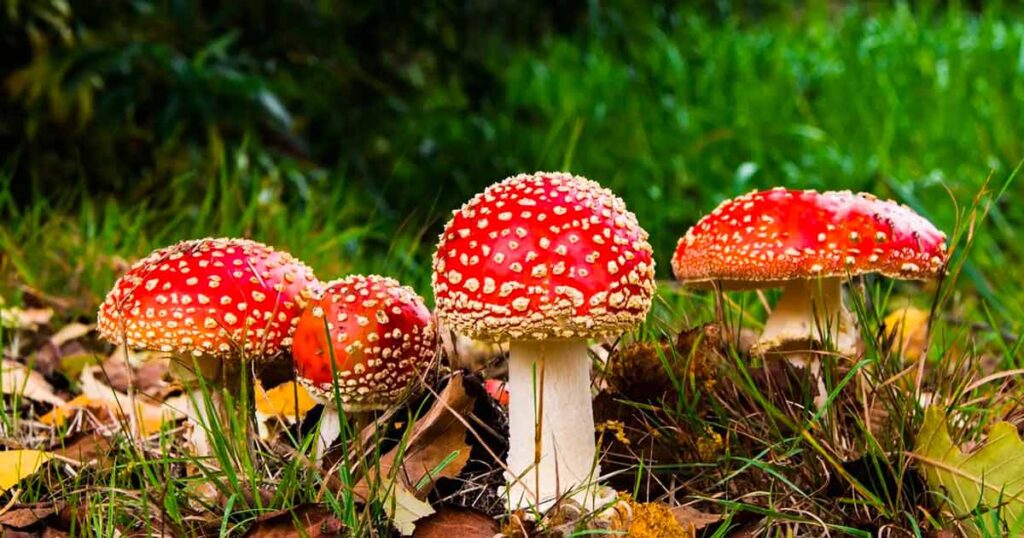Expanding research on psychedelics as a potential treatment for mental health conditions like depression, anxiety, and PTSD has sparked a new movement. Now, a dedicated political action committee aims to elect leaders backing the therapeutic use of substances such as psilocybin (found in magic mushrooms), ketamine, and MDMA (also known as ecstasy).
One of the primary goals of the Psychedelic Medicine PAC is to secure federal funding to accelerate education and research efforts during a period of heavy controversy on opioids, predominantly fentanyl, and other traditional pharmaceuticals.

Therapeutic, Before Recreational
Defenders of the long-argued therapeutic use suggest that psychedelics are safer and more effective than prescription drugs, some of them carrying the risk of dependency. As more clinical studies are coming out, the movement has grown in recent years, with the matter becoming more necessary due to the escalating mental health issues caused by the pandemic.
Even those who firmly believe in the potential benefits of the substances acknowledge that further research is needed to fully comprehend how we can utilize this to treat potentially life-threatening disorders.
In an interview for NBC News, Ryan Rodgers, Psychedelic Medicine PAC’s co-founder and executive director, said: “We have to convince a historically stubborn audience around psychedelics that it’s not the 1960s”.
“People aren’t going to stare into the sun for their eyes to blow out. People aren’t going to jump off a building,” he said. “This is about healing trauma. It’s not about recreation.”
The Advocacy of Melissa Lavasani
As the co-founder and president of her group, Melissa Lavasani has become a leading voice in the fight to destigmatize these substances and raise awareness of their therapeutic potential. Melissa’s experiences using psychedelics to treat her postpartum depression and chronic pain have fueled her advocacy work. She led an initiative in Washington, D.C. that decriminalized cultivating and possessing plant and fungi medicines. The public widely supported her initiative, with 76% of voters endorsing it in 2020.
The success of Melissa’s initiative has sparked similar efforts in other states throughout the United States. Oregon legalized the use of psychedelic mushrooms in therapeutic settings in the same year that her initiative was passed, and other states are now following suit.
Melissa’s efforts have not gone unnoticed. A bipartisan group of congressional leaders recently launched a caucus promoting research and awareness around psychedelic-assisted therapy. The Biden administration has also expressed interest in creating a task force to study the potential of psychedelic substances as a treatment for mental health disorders.
“A research approach and a science-drive approach is really the path of least resistance,” said Psychedelic Medicine PAC’s co-founder and president Melissa Lavasani for NBC News. “It’s going to take a little longer — it’s a very slow approach, and it’s very methodical what we’re trying to do — but it’s a way to ensure people feel comfortable buying into this issue.”
The First National PAC To Support Psychedelics
The formation of the first national PAC focused on psychedelic substances is a significant milestone for the industry. As pioneers in this area, they will set the bar for expectations, shaping the conversation around psychedelic substances and their potential for therapeutic use. However, with great power comes great responsibility. The group must wield its influence fairly and with the greater good in mind, advocating for proper regulations to ensure these powerful substances’ safe and effective use.
According to Rodgers, the group is in the midst of its early fundraising efforts, intending to raise $10 million in its first year. They are actively seeking donations from donors at all levels, including biotech and Silicon Valley community investors.
The group is taking a bipartisan approach to its advocacy work, seeking to build support among both Democrats and Republicans. While this strategy proved effective during the early days of cannabis reform, it has yet to generate the same momentum for decriminalizing and legalizing psychedelic substances.
“We want to ensure that what we’re advocating for doesn’t create an opposition to the issue within the halls of Congress,” Lavasani said. “We’ve seen how some of the strategies employed by the cannabis reform movement have been really divisive, and that’s really delayed some of the progress. That’s a real lesson learned.”

Psychedelics as Medicine: Balancing Hype with Caution and Education
Lavasani highlights the importance of not prematurely pushing for the legalization or decriminalization of psychedelic substances. The focus should be on educating elected officials about these substances’ potential therapeutic benefits so they can make informed decisions. By doing so, the group hopes to pave the way for a safe and responsible integration of these substances into modern medicine.
The growing interest in using psychedelic substances for medicinal purposes is reminiscent of the early days of the cannabis industry, which has since encountered regulatory obstacles and congressional hurdles to federal decriminalization. Currently, MDMA, LSD, and psilocybin are all classified as controlled substances with no accepted medicinal value. Despite the enthusiasm surrounding these substances, Ryan Munevar, campaign director of Decriminalize California, urges caution and notes that the political process moves slowly, making it crucial to manage expectations carefully.
Enjoyed that first hit? Come chill with us every week at the Friday Sesh for a freshly packed bowl of the week’s best cannabis news!

















